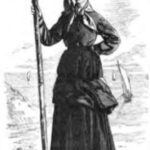This paper deals with the history of research on the Greek presence in Iberia during the 20th century. It analyses the historical idealism and what we could call the philological archaeology of the works of Schulten, Obermaier, Carpenter and Bosch Gimpera in the first half of the century, the great figure of García y Bellido, the positivist archaeology of the 1960s and 1970s, led by Gloria Trías, the new excavations carried out in the 1980s, and the new approaches of the 1990s, in which an attempt is made to reconstruct the history of this process from the point of view of the consequences that this commercial action had on the economic, social and political development of the communities involved in the exchange with the Greek world.
Collection: Texts
Project: 9. Travels and travelers: economic, social and cultural connections.
Chronology: -
Scope: Secondary Education
Link: http://www.man.es/man/dam/jcr:45938ac8-b526-4216-b9ee-d9f68e343bd5/man-bol-2001-cabrera-bonet.pdf
Resource type: pdf
Format: Texts
Owner: Arqueological National Museum of Spain (MAN) (Modernalia)
Abstract: This paper deals with the history of research on the Greek presence in Iberia during the 20th century. It analyses the historical idealism and what we could call the philological archaeology of the works of Schulten, Obermaier, Carpenter and Bosch Gimpera in the first half of the century, the great figure of García y Bellido, the positivist archaeology of the 1960s and 1970s, led by Gloria Trías, the new excavations carried out in the 1980s, and the new approaches of the 1990s, in which an attempt is made to reconstruct the history of this process from the point of view of the consequences that this commercial action had on the economic, social and political development of the communities involved in the exchange with the Greek world.
Tags





